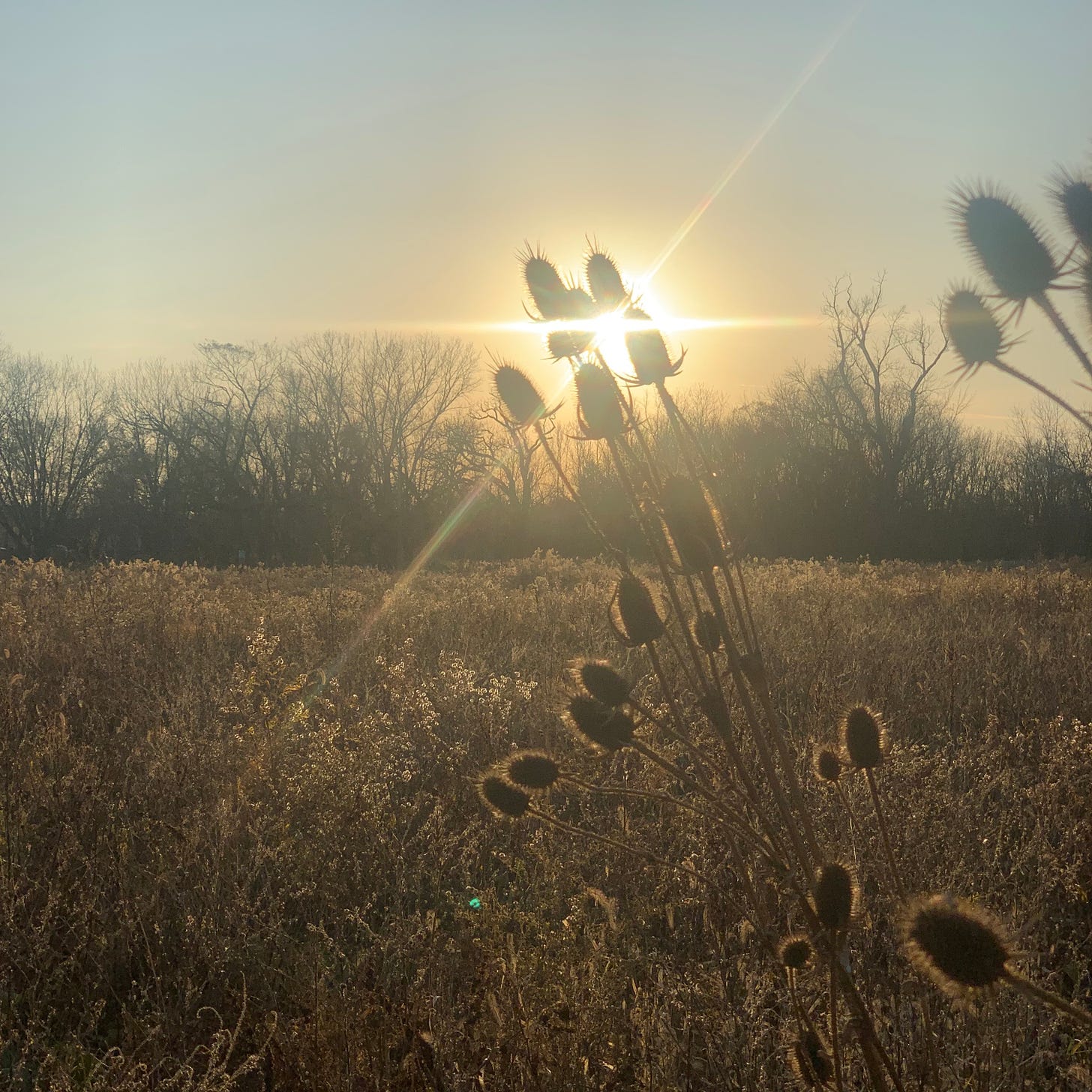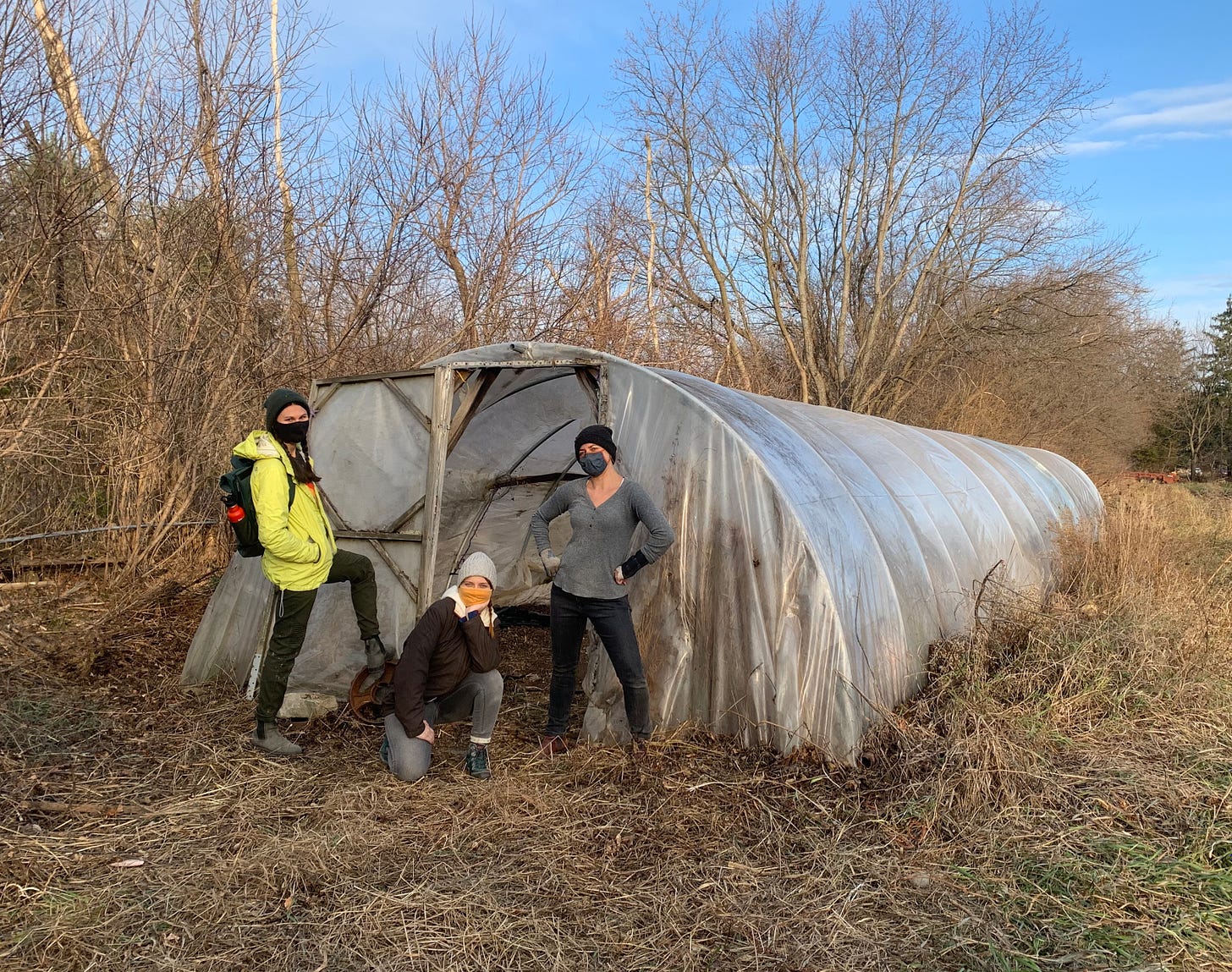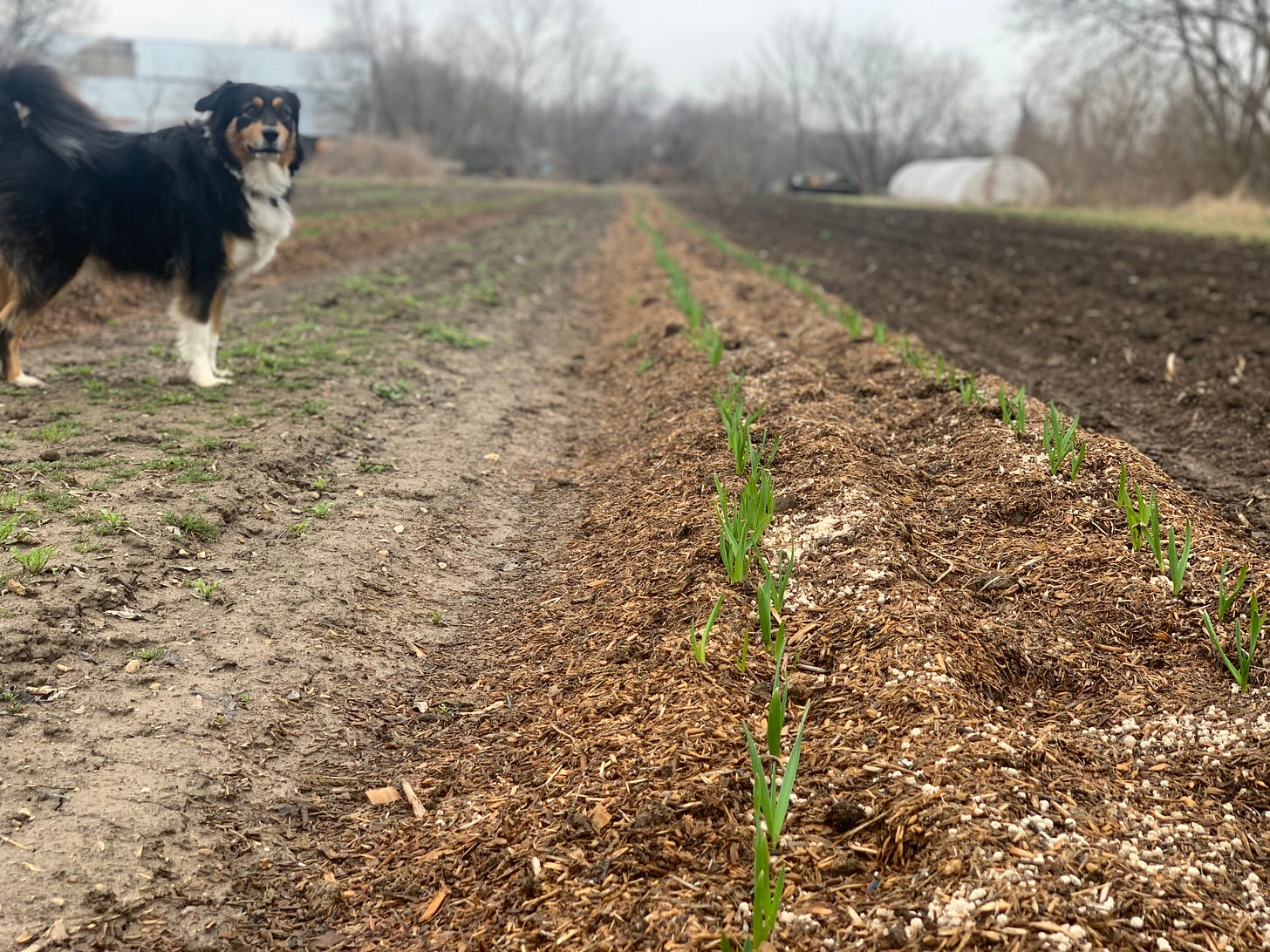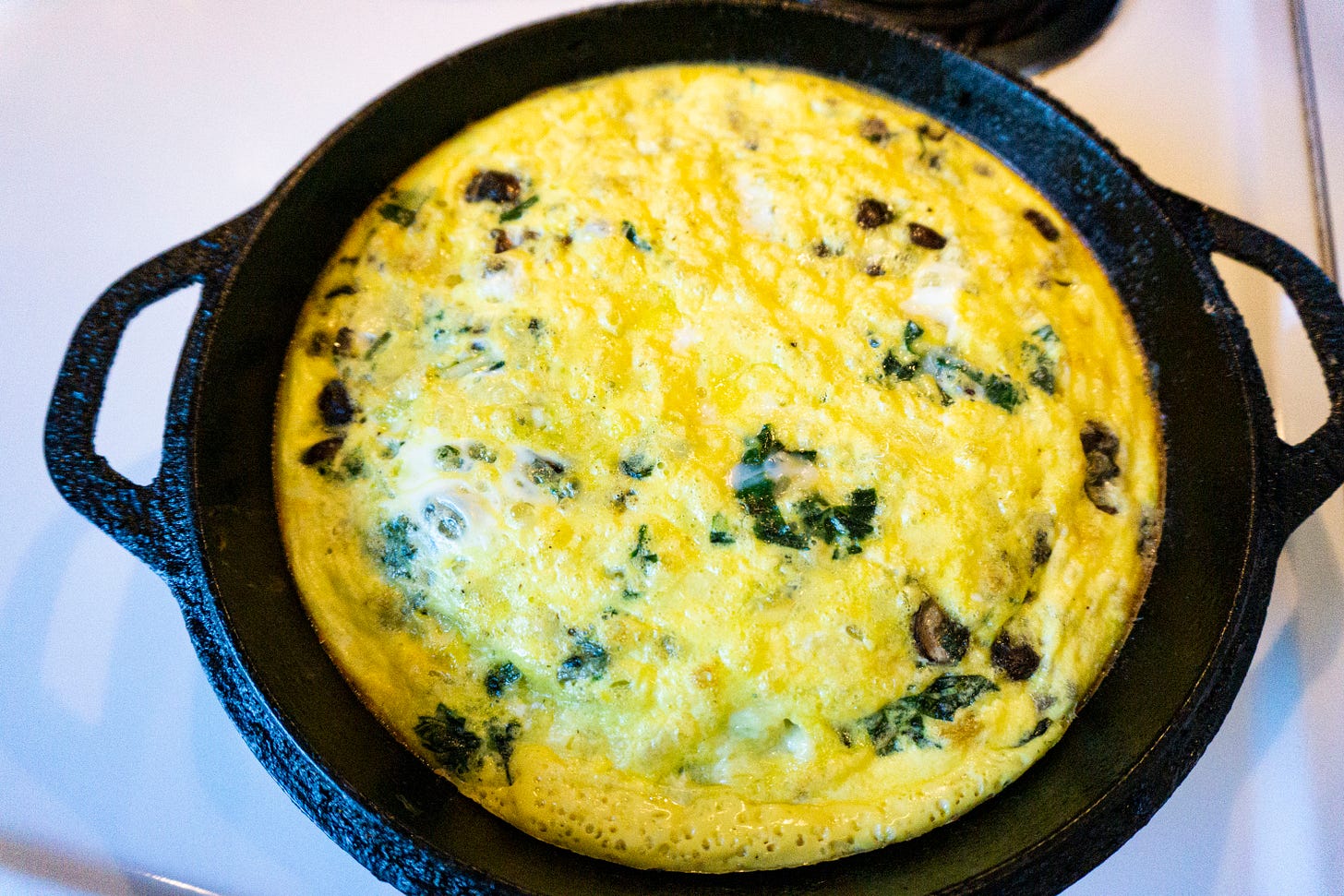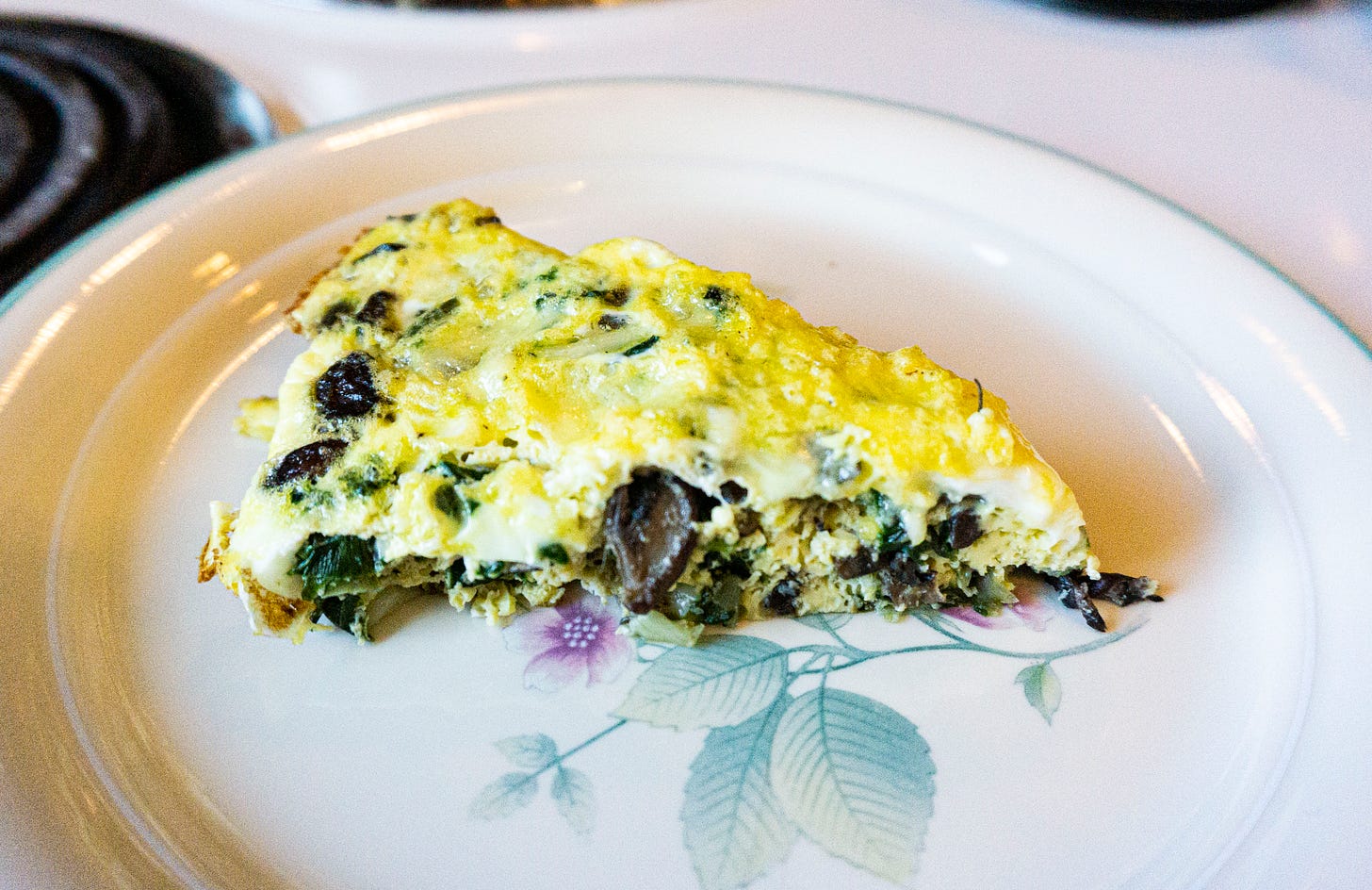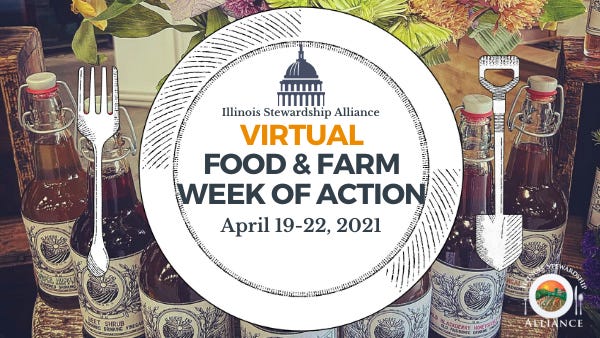In this issue:
• Introducing the Seasons of Change Farm Series
• Meet the Young Women Farmers at Wild Trillium
• Spring Ramps Up!
• Make a Difference: Illinois Stewardship Alliance’s Week of Action
• Take a Quiz (Go Green!)
Introducing Seasons of Change
There are many people in the local food community who help get food from farm to table. But — obviously — it all starts with the farmers. And one of my highest priorities at Local Food Forum is to illuminate what life on the farm is really like... through the eyes of farmers themselves.
To do that, we are going to try something different. Several of our region’s farmers have volunteered to regularly share articles about the challenges and joys of growing healthy, sustainably produced food for customers across the Chicago region.
Some will have bountiful harvests, others may have struggles, all will have to deal with regional weather that is always unpredictable, made more so by global climate change. Whatever the situation, these farmers will have stories from which we all can learn, with a side order of hope and inspiration.
(If you are a rural, urban or rooftop farmer — or a passionate food gardener — and would like to participate in Seasons of Change, drop a note at bob@localfoodforum.com.)
— Bob Benenson
Seasons of Change at Wild Trillium Farm
Early April 2021
Since this is a new newsletter, we’re kicking off the Seasons of Change series with a new farm. Wild Trillium Farm is located in Richmond, Illinois, 65 miles northwest of Chicago and hard by the Wisconsin border. Our region’s farm community needs more young farmers and more women in farming. Wild Trillium is both, as it is a partnership of lifelong friends Christine Johnson, Katie Szymanski and Emmy May.
Christine speaks for the group in the following Q-and-A about the origins of Wild Trillium Farm.
Q: Share a little about each of your backgrounds and how it led to your decision to partner on Wild Trillium Farm.
A: We were all born and raised in Cary, Illinois, been friends since grade school, and graduated from Illinois or Indiana schools before moving back to Chicago in the 2010s. Our relationships have sustained over so many years and life events, we are amused and amazed that we are now starting a business together!
I graduated with a B.S. in Public & Environmental Health with ambitions to go to law school. The summer between my third and fourth years of college, I worked with Gary Gauger and his partner Sue on their farm in Richmond — my first farming experience ever. That season had a profound effect on my mental health and relationship to food, and I have been participating in local food systems ever since.
After working as a paralegal in Chicago’s Loop for a few years, I made an emotionally easy decision — but a financially disruptive one — to quit and start my own urban farm, formerly known as Avium Flowers. From 2015 to 2018, we grew sustainably grown cut flowers, herbs and grains for CSA (community-supported agriculture) and for wholesale to local florists.
During this period, I also kept full-time work at restaurants, worked for a local flower cooperative in Madison/Milwaukee, apprenticed with Brightflower Farm in western Illinois, joined local farmer Yoram Shanan to add flowers to his crop plan, and started Chillinois, a nonprofit chapter of the National Young Farmers Coalition. I burnt myself out, lost relationships and decided to rest to find a new way to consider how I could be a farmer for the rest of my life. This business feels like a long-time coming for me, personally.
I have known Katie and Emmy essentially my whole life! Katie and I were babysat as infants and “formally” introduced in kindergarten, Emmy and I became friends later in grade school. Fast forward and we’ve stayed friends and confidants through college, Katie graduating with a degree in Anthropology — her thesis focused on local food systems and organic farming — and Emmy with a B.A in Arts and Psychology. They both worked and lived at the farm for three seasons in 2009 through 2011 before moving to Chicago. Maybe there’s something in the soil there, but Gary and Sue and their farm left an impact on us all.
Q: Tell a little about the process leading up to your decision to move forward on the project.
A: Last year sucked. One thing that was a positive diversion from the pain, hurt and confusion of 2020 was a small urban garden we worked on together to grow food for our households and others.
When the season started slowing down, Gary’s and Sue’s offer for us to farm in Richmond started feeling more realistic every day. Growing food kept us sane and out of grocery stores for months, and our positive experience working together last season added confidence to the idea that we could grow food for other people too. I think we all agree that there is a line between making something you adore a business, but in this current climate, there is nothing more important than getting healthy food to folks we care about. In the end, it just felt right, but absolutely is very scary.
Q: How are you preparing for your first growing season?
A: This year is a big first for all of us, whether it includes learning new skills associated with business management, expanded acreage, learning new crops, or driving tractors. We are taking it as calmly as possible and putting a focus on the daily reminder that we’ve chosen this career path because we love growing food and participating in nature and the seasons.
The technical stuff will always creep into the anxiety psyche that exists in us all, so it’s a daily reminder that we are here because of love. At some point, no matter all the planning and back-up plans for the back-up plans that exist, you have to release some control, because agriculture itself is at the whim of weather and nature.
Another helpful part of this massive jump we’ve taken is that we are farming alongside Gary, who owns and has operated Natural Farm Stand with Sue on this land for the past 30 years. We’ve found relief having a real action timeline, which offers all sorts of reminders for pieces we have to consider. Gary and Sue are such warm and special people in general, and their support is a huge reason we will have any success at all.
Q: What are you planning to grow this year?
A: Our crop plan is super-ambitious and diverse for the first season. Because our goals for season extension include dried herbs and medicinal flowers, we are putting a lot of energy into establishing a perennial field. In addition, my background growing flowers basically doubled our seed purchase list, which is exciting but can be intimidating learning the specificities of all these fun crops, especially with the inclusion of pollinator rows, companion planting, and cover crops for soil health.
We’re also just obsessed with food in general, and not shying away from crops that may be unusual to see in our growing zones, like ginger, turmeric, artichokes and cardoon. A nice line we’ve drawn for ourselves includes the idea that each crop we grow should have multiple purposes. So any toxic flowers are eliminated, and if it can’t be dried or stored for a later or second use, it also lost priority on our list. We’re really excited to expand and highlight the joys of seasonal diets for eaters in northern Illinois with some weird and unusual items!
Q: Promote your CSA!
A: Our CSA is meant to serve folks in Chicago, where we work and live part-time. We offer a weekly or bi-weekly option for vegetables and flower bouquet from our farm, and eggs from our dear friends at Timberfeast [a pasture-raised livestock farm in Chatsworth, Illinois, also owned by young farmers].
We are so excited to join some awesome people in Chicago, friends from the service industry, and two brand new businesses as our CSA pick-up sites: Eco & the Flamingo, a women-owned-and-operated zero-waste shop in Lincoln Square, and Big Kids, a nostalgic sandwich shop by ridiculously talented chef and beverage geniuses in Logan Square. We are offering limited home delivery for folks with an extra fee, but we really want to encourage communities supporting local business.
Another important aspect of our CSA offerings is that we will be donating produce to local food banks in Chicago, and farm supporters who have the means can contribute to this through our “Community Share:” 100 percent of this share goes to food banks alongside our produce donations. We will have a small farmstand that operates on the honor system, so if you’re ever in Richmond, feel free to stop by and pick up groceries there too.
Ramps Up!
T.S. Eliot’s famed poem The Waste Land includes the line, “April is the cruelest month.” That has certainly been true for farmers market fanatics like me, as the markets tend to go dark for the month before the growing season begins for real in May.
That made it difficult for us city folks to get those very early season treats such as ramps, those wild foraged onions that have a cult following among chefs and local food home cooks. But the rise of vendors who take and aggregate orders from the region’s farmers — and the proliferation of farms that use e-commerce to sell directly to consumers — are making April much less cruel.
On Friday, I received my first bunch of ramps this season from The Seasonal Plate, a small farm in Cullom, Illinois, via Village Farmstand. If you caught the trivia question in an early pre-launch issue of Local Food Forum, you already know that historians believe that the city of Chicago gets its name from Chickagou, the American Indian word for the plant, which once grew prolifically on the southwest shores of Lake Michigan.
There are several translations for this word, but the favorite is “Stinky Onion.” I love Chicago but it is kind of fun to say that you live in Stinky Onion, U.S.A.
You can use ramps just about any way you’d use other types of onions: in salads, sauteed, roasted, grilled, pickled. They are also amazing in a frittata, aka baked omelet, aka crustless quiche. There are tons of recipes on the web. I made this one with the ramps, cremini mushrooms from River Valley Ranch and aged cheddar from Nordic Creamery (Wisconsin), and farm-fresh eggs from Jane’s Farm (Illinois).
It… is… awesome.
Happy ramping!
ISA’s Legislative Week Of Action: April 19-22
Illinois Stewardship Alliance (ISA) is a nonprofit that promotes the interests of local farmers and is the foremost representative of our local food community to the state legislature in Springfield. Because we are still dealing with COVID constraints, ISA has moved its Week of Action to online from April 19 through 22.
According to ISA’s website, “Throughout the week, we’ll provide you with easy opportunities to learn about the issues, take action, and join forces with farmers and food lovers in your community and throughout the state.”
The event supports the legislation on ISA’s 2021 Policy Agenda, which aims to grow the number of farmers and local food businesses in Illinois, revitalize our communities, protect our soil and water, and keep food dollars local.
Among those participating in the Week of Action is Christine Johnson of Wild Trillium Farm, featured in the article above, who is leading a constituent meeting with state Rep. Delia Ramirez of Illinois’ 4th District.
Please click the buttons below to participate in ISA’s Week of Action and the 4th District meeting.
Take a Quiz
The Chicago food region includes the nation’s first land-grant college. It is:
a) University of Wisconsin
b) University of Illinois
c) Michigan State University
d) Purdue University
Answer: c). MSU, located in East Lansing, was founded in 1855 as Michigan Agricultural College, and in 1862 became the first land-grant college (almost at the same time as Pennsylvania State) under the Morrill Act signed by President Abraham Lincoln. As it grew, it was renamed first as Michigan State College and then in 1955 — its centennial year — became Michigan State University. In recent years, it has established itself in the vanguard of higher education in sustainable agriculture (I took the photo at the Student Organic Farm several years ago).
I was going to add a second question about where I graduated from college, but you probably already guessed.




